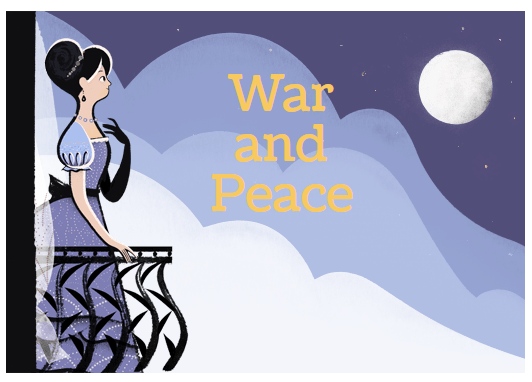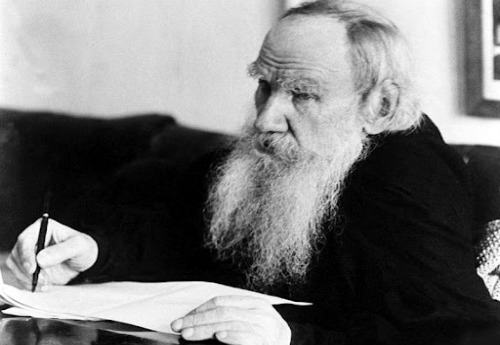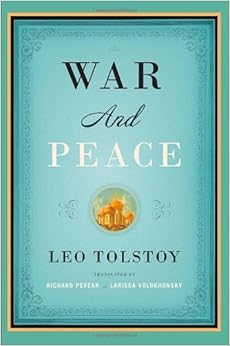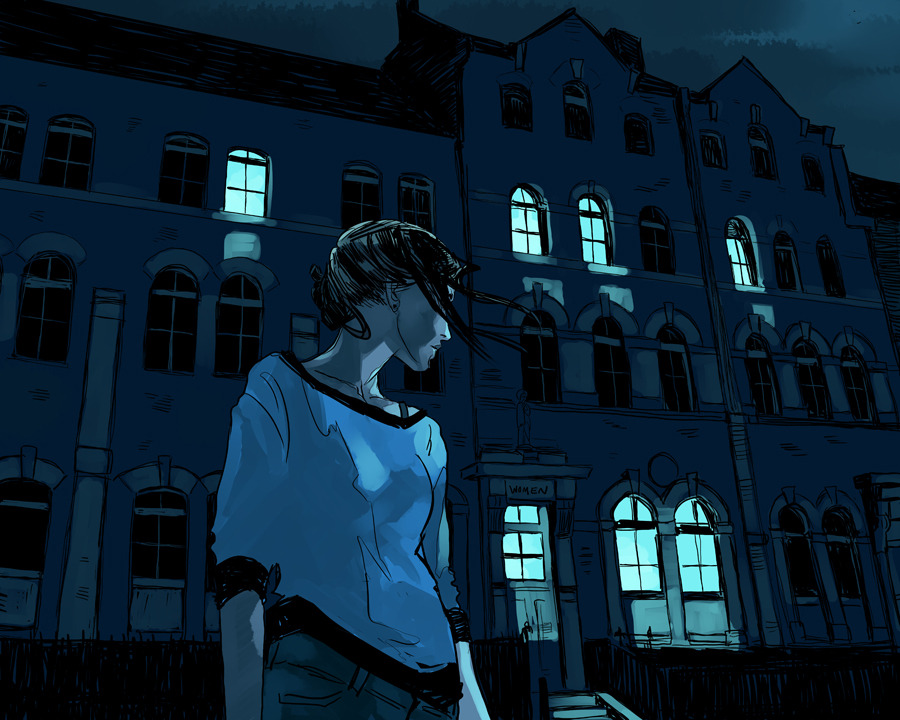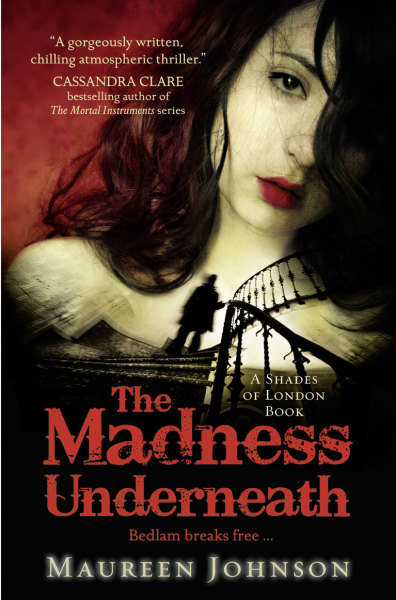So it's a relatively nice day in Brooklyn, NY, if you don't mind the remains of yesterday's snow on the streets (I do), enjoy having your hair whipped into your eyes and mouth (I don't), and take grim pleasure in seeing how much more apocalyptic neighborhoods like Sunset Park look when dusted with grimy snow (I sort of do). But regardless of what I feel about today, it is The Day to Return My Books to the Library, because I've run out of excuses (i.e. holidays, snow, bag is too heavy already, day off from work, etc.) and also I need to suck it up and pay what I owe.
I'm also going to take this opportunity to do a quick review of these books before I lug them over to Central Library and beg to be able to renew the one I haven't finished (and which I therefore can't review yet). I get a lot of questions from friends about book recommendations, and find it hard to give them off the top of my head, especially when people are so non-specific about genre. Additionally, I am tired of people thinking either I've read everything ever written or I only read novels. So if you want to know what I've been reading lately, this is it (photos from my Instagram):
The Monk Downstairs by Tim Farrington
Rating: PG-13 (some language, sex, mention of drug use)
Score: 5/5
Synopsis: Rebecca is a single mom and graphic designer, reconciling herself to the failure of her marriage and her dreams of being an artist. Mike is a former monk, trying to get back into the world he left behind for a monastery twenty years ago. Unused to trusting others, Rebecca takes a risk and rents out her basement apartment to Mike, despite his lack of a job and credit history. As their tentative friendship grows, they find that though they've both gotten off the path they'd planned for themselves the world has a lot more to offer. Told from Rebecca's close third-person POV and Mike's letters to an old monastery friend, the story tackles questions of faith in God, people, and in oneself.
Review: This book is not only one of the most beautifully written books I've ever read, but also one of the most surprising. I picked it up on a whim at the library because I liked the title and cover, and upon skimming through the first few pages, I liked its practical but thoughtful style. I figured it'd be a romance, and was interested to read a romance between two people in their late thirties/early forties who aren't traditionally "sexy." This book is a romance, and it's a lovely one that had me catching my breath and giggling, but it's even more than that. It's a story of changed ideals and dreams, and hints at the Great Question of Life--the answer of which, it shows, is not "42"* but caring for others, even when it makes you vulnerable. Religion is woven into the story seamlessly and respectfully in a way that I appreciated as a Christian, but which would be meaningful even to a non-believer. Something else I loved was that Farrington (the author) actually writes a woman so well that I kept forgetting a man wrote this book. I still have a hard time accepting Farrington is a man--he gets it so unfailingly right.
Honestly, I could go on and on about this book, but I won't.
God's Samurai: Lead Pilot at Pearl Harbor by Gordon W. Prange
Rating: PG-13 (violence)
Score: 5/5
Synopsis: This is a biography of Mitsuo Fuchida, the man who lead the attack on Pearl Harbor, fought in World War II for Japan, and later became a passionate evangelist for all nations. The story is taken from interviews Prange had with Fuchida, whom he formed a friendship with, and supported by information and details from Fuchida's friends and family. Descended from samurai and obsessed with flying from an early age, Fuchida grew up a Japanese nationalist, and though to Americans the attack on Pearl Harbor seemed an act of cruelty, Fuchida saw it as an act of glorious destiny. During WWII, Fuchida nearly died countless times and became an honored military strategist and leader. After the surrender, he sank into depression until several run-ins with street evangelists led to his conversion to Christianity. Subsequently, he became a major promoter of world peace, believing all war evil and all peoples equal.
Review: Why isn't this a movie? That's my question. But let's be real--Hollywood won't do it because it would require a mainly Japanese cast, and the only Japanese used by Hollywood is Ken Watanabe, who has been in almost every major film that a Japanese man is needed for (The Last Samurai, Letters from Iwo Jima, Godzilla). They'd have to multiply Watanabe for every single role and there just aren't enough white people in most of the story to plant in Tom Cruise or Brad Pitt. Unsurprisingly, the only film about Fuchida is Tora! Tora! Tora!, a 1970s Japanese movie about the attack on Pearl Harbor.
Fuchida lived an incredible life and I'm sorry that most people don't know of it. The book excellently portrays him as a flawed man, with a prideful streak and having made many mistakes, but he was a brave and honorable man with a great sense of humor. As much as I love war history, especially WWII, anyone who knows me well should know my distaste for war, and to read that a soldier like Fuchida rejected war later in life was wonderful to me. It isn't a religious book, promoting Christianity above other religions, even Shintoism or Buddhism (the religions Fuchida turned away from). Instead it shows how Christianity impacted this one man's life and how he learned to forgive those who had killed Japanese at Tokyo, Hiroshima, and Nagasaki, and was forgiven by relatives of those whose had died at Pearl Harbor. Definitely one of my favorite biographies of all time. It also breaks down nationalism, which gains points from me, and gives a fair and unwavering coverage of the realities of war without taking any side.
Love Among the Ruins by Robert Clark
Rating: R (graphic sex, strong language, some drug use, thematic elements)
Score: 3/5
Synopsis: It's the summer of 1968, what begins as a simple summer romance between teenagers Bill Lowry and Emily Byrne becomes something much more complicated. Bill, raised by a free-spirited single mother, finally acts on his crush on Emily by sending her a letter detailing his feelings. Emily is an innocent Catholic girl who shares everything about her life with her loving and semi-boring parents. But as their perfect summer draws to an end, Bill and Emily are afraid of losing what they have in the humdrum of normal life and so run away to camp out in the wilderness, an act which sends their parents into spirals of their own.
Review: Clark is a brilliant writer and the details of each scene in this book are full of the symbols and metaphors that a literary nerd loves to analyze. In fact, Clark errs on overdoing the detail, but it works--the description of every bit of furniture and decor in a room makes the story real. That being said, the sex scenes are so graphic that they were actually a little nauseating even to skim through. There were also some slight weaknesses in the plot--Emily has a sister who is so irrelevant to the story that the Byrnes run like a one-child family and makes a reader question the purpose of the sister's occasional appearances. The characters, while believable are not very likable, and I didn't strongly sympathize with any of them by the end. It's a love story, but the romantic love of the story is very selfish, and seems not intertwined with lust, but interchangeable for it. The parents of the story truly love their children, and it's that love that really has the most power, especially when the focus is on the parents' POV.
All in all, an enjoyable read, even when skipping the cringe-worthy sex scenes, and the ending took me by surprise, but I wouldn't re-read or highly recommend it.
Bloodtide by Melvin Burgess
Rating: R (sex, graphic violence, strong language, absolutely terrifying situations)
Score: 4.5/5
Synopsis: Based on the Icelandic Volsunga Saga, this is the story, of Signy and Siggy, twins raised on wealth, privilege, and violence, who are closer than close, and when they lose everything they must conspire for revenge. Their story is set in a post-apocalyptic London, cut off from the rest of the world by monsters made of machines and animals and separated by two rival gang leaders--Volson and Conor. In an effort to make peace and an alliance, Volson gives his teenage daughter Signy to Conor as wife. But the god Odin has different ideas, and gives Siggy a magic knife that creates a rift between Siggy and Conor, and thus between Siggy and his twin Signy. What follows is betrayal and the destruction of the Volson clan, leaving Siggy and Signy, bound by blood and bitterness.
Review: I first read this book when I was about fifteen, almost ten years ago, and it's stuck with me ever since, even though I can never recall its title. It impacted me hugely--physically, because the violence literally made me nauseated (if the idea of a pig eating a live human freaks you out too much, do not attempt this book), emotionally, because the conflicts make it hard to know who you support, and creatively, because my writing would not be what it is without this book. Burgess depicts the brutalities of war and violence unflinchingly, and though its entirely fictitious, the depths of evil that are plumbed are one of the most believable aspects of the story. It raises questions of humanity, which Burgess cleverly brings to light with half-animal characters who are more "human" than many of the full-blood humans.
Like Herbert's Dune, Burgess doesn't waste time explaining his world, he just dumps the reader into it, and he does it almost as successfully. It's a fascinating world, where science and magic are synonymous, and it blends sci-fi and fantasy well, but it leaves a lot of logical questions, and because it IS a retelling of the middle of the Volsunga Saga, it feels like it's missing a prequel, and the ending is awfully sudden. Sadly, the sequel, which I haven't yet read, begins years afterwards with other characters, so the sudden ending is not redeemed.
I genuinely love this book. If you read Martin's A Song of Ice and Fire series, I say go for this one, because it has some similar elements and issues, and you can definitely handle its intensity. But it's not for the weak of heart or stomach.
And so I'm off to the library pictured above to return these (plus some DVDs I forgot to watch) and beg to renew the one I haven't finished. I'll probably also be picking up some more books, like perhaps the sequel to The Monk Downstairs, and passing the time before I go tutor SAT prep to some poor young soul.
I'm going to be trying to review what I read more regularly, so feel free to recommend books for me to read/review! I try to take in one non-fiction, one realistic fiction, and one fantasy or sci-fi novel on each trip, so I'm open to ideas.
_____________________________________________
*If you've never read/watched The Hitchhiker's Guide to the Galaxy, please stop reading this post and go do so.












